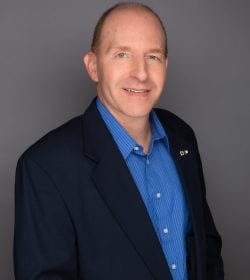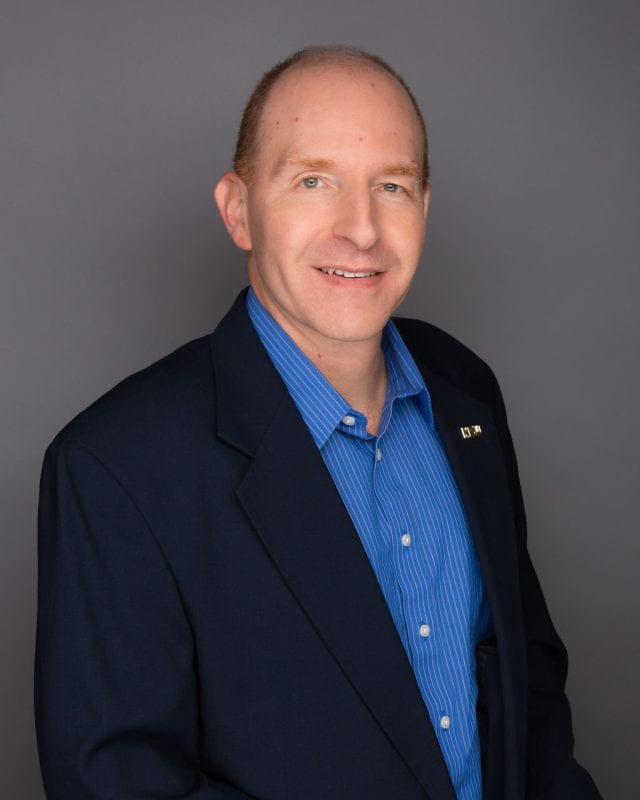$430K NIH Grant Exploring Barriers to Healthy Behaviors in Individuals with PTSD


Jeffrey Kibler, Ph.D. is a Professor in NSU’s College of Psychology. He was recently awarded a $430,000 NIH grant from the National Heart, Lung, and Blood Institute to study “The Effects of a Cognitive Behavioral Healthy Lifestyle Intervention for Cardiovascular Risk Reduction in Posttraumatic Stress Disorder.”
Tell me about your recent grant-funded project.
This project is an extension of research piloted in my lab examining the impact of a 12-week intervention we developed to address health issues in posttraumatic stress disorder (PTSD). Over the past 20 years, researchers have contributed to finding a clear relationship between PTSD and cardiovascular disease risk. However, there has been little focus on the treatment of PTSD-related health problems. We will explore the unique barriers to engaging in healthy behaviors (i.e., sleep, managing stress, eating healthy) that individuals who have PTSD experience.
Who is working with you on this project?
I have two collaborators on this grant from the University of Miami. Dr. Neil Schneiderman is working to ensure success with recruitment, addressing measurement issues, and has extensive experience with behavioral measures. Dr. Maria Llabre is an internationally renowned statistician, especially in behavioral medicine research. She will be assisting with data analysis. I will be coordinating the study aspects and implementing the intervention at NSU and future sites.
Additionally, currently we have 12 doctoral students from the clinical psychology program working with us. Abby Dopico is a second-year doctoral student who is working with me as a research coordinator. She will have a significant role in coordinating student training. She will also be a primary contact for participants and will work with research assistants on scheduling sessions. This project is also designed to provide opportunities for undergraduate students.
What stage are you at with the current project?
We are currently building a strong team of students to work with on this project and training them on the lab assessments and intervention we are implementing. We are also ordering the necessary equipment to measure outcomes in this study.
How does this grant intersect with your work at NSU?
Most of my research at NSU has focused on the relationship between PTSD and cardiovascular disease. I’ve conducted studies showing that there are higher rates of unhealthy lipids, high blood pressure and obesity in individuals with a PTSD diagnosis. My hope with all of this research is that individuals who treat PTSD will be able to address both the psychological and physical health risks.
What advice do you have for other grant seekers at NSU?
“Building your base”—It is not possible to write a good grant proposal out of the blue. Investigators must commit to a topic, complete research in that area, and publish numerous papers over the years in order to build credibility. I found that NSF and NIH consider investigator productivity for three to five years before the start of a project, so building a base is very important.
Also, time is our biggest resource. When submitting to a federal grant agency, be prepared to devote 6-12 months of intensive work for preparing the grant, knowing that this competes with time and energy typically devoted to other professional and personal activities.
What Is your hope for the outcomes in this project and expanding on It in the future?
We hope to find that the intervention program has some significant positive impacts on the health of adults with PTSD. The main advantage we have with this project is that we are following our participants for a year, whereas in the past I was only able to measure participants’ outcomes immediately post-intervention (after 12 weeks).
Our next step, if there are positive findings, would be to look at ways to disseminate this intervention into the community and apply it.
What is the next grant proposal or project on your agenda?
I am aiming for future collaborative work with the NSU Institute for Neuroimmune Medicine. We plan to submit additional grants to NIH, CDC, or DoD to take advantage and leverage the mutual interests my co-investigators and I have on PTSD and associated health problems.